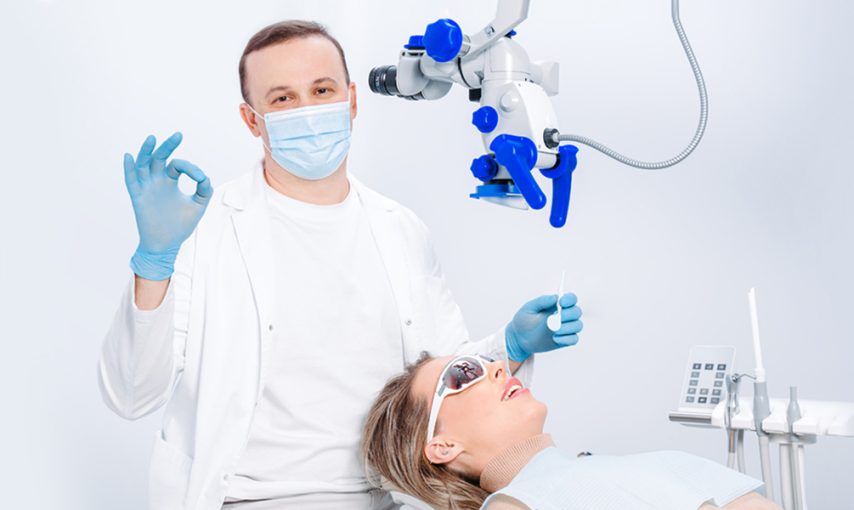If someone told you that oral surgery wasn’t just about teeth, would you be surprised?
Maxillofacial surgery is a specialty that bridges the gap between medicine and dentistry. It’s not just for wisdom tooth removal—it handles a range of conditions affecting your jaw, face, mouth, and neck. At Family Dental Care, we believe in helping patients understand why this type of surgery might be recommended. Whether it’s for health, comfort, or function, understanding your options makes the journey easier.
Let’s walk through the top reasons you might need maxillofacial surgery—and what to expect.
1. Severe Tooth Impactions
Impacted teeth are more than just uncomfortable. They can lead to infection, pain, or crowding.
- Most common with wisdom teeth, especially in teens and young adults.
- If left untreated, impacted teeth may damage nearby teeth or bone.
- Signs include swelling, jaw stiffness, or pain at the back of your mouth.
In these cases, a skilled maxillofacial doctor near you can perform precise extractions under sedation to ensure comfort. It’s usually an outpatient procedure, but recovery can take a few days.
2. Jaw Misalignment or TMJ Disorders
Have you ever noticed popping sounds, discomfort while chewing, or even facial pain?
Temporomandibular Joint Disorders (TMJ) affect the hinge connecting your jaw to your skull. Surgery isn’t always the first step—many patients find relief with bite guards or therapy. But when the jaw is severely misaligned, or the joint is damaged, surgery becomes a real solution.
Here’s what corrective jaw surgery can do:
- Align the jaw for better chewing and speaking.
- Relieve chronic jaw or facial pain.
- Improve facial balance and symmetry.
Patients often say they didn’t realize how much discomfort they’d been tolerating until after surgery. That relief? Life-changing.
3. Facial Trauma and Injury
Facial injuries are more common than you’d think. Car accidents, sports collisions, or even slips and falls can leave lasting damage.
If you’ve suffered trauma to your face or jaw:
- You might experience fractures, dislocations, or nerve injuries.
- Early treatment improves recovery and cosmetic outcomes.
- Surgery often includes reconstruction and stabilization using plates or wires.
In these cases, services like maxillofacial near you aren’t just about repair—they’re about restoring function and confidence.
4. Oral Pathologies and Growths
Lumps, bumps, or sores inside the mouth that don’t heal on their own? Always take them seriously.
Oral pathologies could include:
- Cysts or tumors in the jaw.
- Suspicious lesions that need biopsies.
- Salivary gland issues that cause chronic swelling or infections.
Maxillofacial surgeons work closely with your dentist or doctor to identify and remove abnormal growths. While most are benign, catching them early is crucial.
Even when the word “biopsy” sounds scary, having the right team beside you makes all the difference.
5. Sleep Apnea and Breathing Issues
Surprised? Maxillofacial surgery is sometimes a powerful tool against sleep apnea, especially in severe cases.
Obstructive Sleep Apnea (OSA) occurs when the airway collapses during sleep. While CPAP machines help many, some people need structural changes.
Jaw surgery can:
- Move the upper or lower jaw forward to widen the airway.
- Improve breathing and reduce apnea episodes.
- Lead to deeper, more restful sleep.
Sleep apnea is serious—it’s linked to heart disease, fatigue, and mood problems. When other treatments don’t work, surgery offers hope.
Other Issues
There are more issues that needs to be addressed.
- Congenital Conditions or Birth Defects
- Cleft lip and palate.
- Underdeveloped jaws (often seen in genetic conditions).
- Facial asymmetry that causes bite issues.
- Dental Implant Support and Bone Grafting
- Tooth loss.
- Gum disease.
- Aging.
- Persistent Infections and Abscesses
- Swelling in the face or neck.
- Difficulty opening your mouth.
- Fever and fatigue.
Some people are born with conditions that affect their facial bones or oral structures.
Examples include:
Maxillofacial surgeons often work as part of a larger care team, especially for children.
Did your dentist mention you need more bone before getting implants?
You’re not alone. Bone loss in the jaw often happens due to:
A maxillofacial doctor near you can help with advanced grafting procedures, ensuring you get long-lasting results.
Some dental infections run deeper than they seem.
If a tooth infection spreads or travels to the bone or surrounding tissues, it’s a serious situation. You may experience:
Getting prompt care from an expert in maxillofacial surgery in Crestwood ensures the infection doesn’t spiral out of control.
Conclusion
Maxillofacial surgery isn’t something to fear—it’s a path toward healing and better living. Whether you’re dealing with jaw pain, sleep issues, or need support after trauma, it’s okay to ask for help.
At Family Dental Care, we guide you through every step. From diagnosis to recovery, we’re here to support you—not just treat you. Call our office or schedule a consultation to meet with a friendly, experienced maxillofacial doctor near you. We’ll take time to understand your concerns, explain your options, and create a plan that works for your life.


